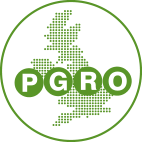Practice Abstract 54 - Plant-based alternatives to meat and milk are increasingly made from peas
Short title (in English):
Plant-based alternatives to meat and milk are increasingly made from peas
Short summary for practitioners (in English):
Currently, peas are mostly used as protein carriers in animal feed. However, the added value of the peas is low. In the recent past, a new development has begun. Highly processed peas are used as protein isolates in convenience foods. As part of the trend to eat less animal products, plant protein sources are needed to place alternative products to meat on the market. Examples of products and companies are: Sliced and spreadable sausage from Rügenwalder Mühle; nuggets and minced meat from Amidori; vegan burgers from Vossko, Impossible Foods and Beyond Meat; vegan curry chicken from Like Meat. This is just an assembled collection of examples. The number of companies and products is currently growing. Even milk alternatives made from pea protein are now available from the Berlin food start-up VLY Foods or Princess of the Pea.
However, the supply chains and the origin of the peas or pea protein isolates for this use are still little known. Many of the companies do not provide information on the origin of the peas processed in their products. There are currently a few large pea-processing factories in Europe: Roquette (FR & NL), Cosucra (BE & DK) and Emsland Group (DE).
If the demand for pea-based meat and dairy products steadily increase, new cultivation and marketing opportunities for peas could arise. It could then become increasingly worthwhile for farmers to produce continuously peas at the appropriate quality and quantity. For plant breeders, the protein content provides a new quality characteristic that is worth breeding for as soon as the processing companies make it a purchasing criterion. In summary, the use of peas in food is more valuable than in animal feed.
Short title (native language):
Pflanzliche Alternativen zu Fleisch und Milch werden zunehmen aus Erbsen hergestellt
Short summary for practitioners (native language):
Aktuell werden Erbsen meist als Eiweißträger in der Tierernährung eingesetzt.Die Wertschöpfung der Erbsen ist dabei jedoch gering. In der jüngsten Vergangenheit hat eine neue Entwicklung begonnen. Hochverarbeitete Erbsen werden als Proteinisolate in Convenience-Lebensmitteln eingesetzt. Im Zuge des Trends weniger tierische Produkte zu essen werden pflanzliche Proteinquellen benötigt, um Alternativprodukte zu Fleisch auf dem Markt zu platzieren. Beispiele von Produkten und Unternehmen sind: Aufschnittwurst und Streichwurst von Rügenwalder Mühle; Burger-Patty, Bratwurst, Veggie Bällchen und Hackfleisch von Amidori; vegane Burger-Patty von Vossko, von Impossible Foods und von Beyond Meat;veganes Curry Chicken von Like Meat.Das ist nur eine beliebig zusammengestellte Sammlung an Beispielen.Die Zahl der Unternehmen und Produkte wächst derzeit. Selbst Milchalternativen aus Erbsenprotein sind von dem Berliner Food-Startup VLY Foods oder von Princess of the Pea inzwischen erhältlich.Die Lieferketten und die Herkunft der Erbsen bzw. Erbsenproteinisolaten für diesen Einsatz sind bisher jedoch wenig bekannt. Viele der Unternehmen machen keine Angaben zur Herkunft der in ihren Produkten verarbeiteten Erbsen. Es gibt derzeit einige wenige große Fabriken zur Verarbeitung von Erbsen in Europa: Roquette, Cosucra und Emsland-Stärke. Bei einer kontinuierlichen Steigerung der Nachfrage nach Fleisch- und Milchprodukten auf Erbsenbasis könnten sich neue Anbau- und Vermarktungsmöglichkeiten für Erbsen ergeben. Dann könnte es sich für Landwirt:innen zunehmend lohnen, die benötigten Erbsen zu der entsprechenden Qualität und Menge kontinuierlich zu produzieren.



